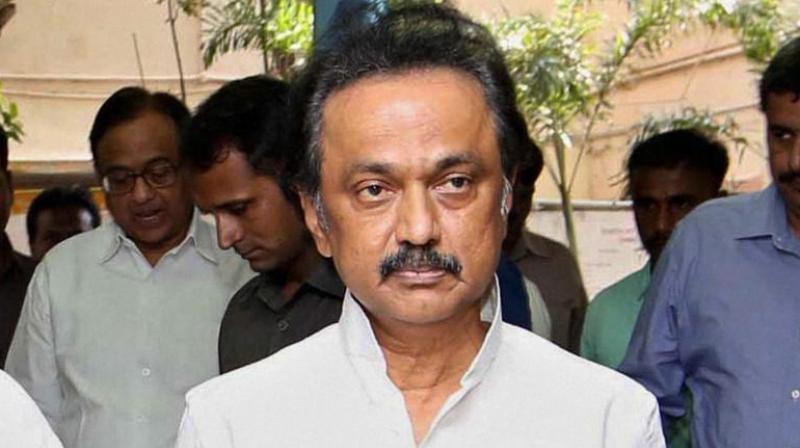DMK's path clearly laid down by MK Stalin
The Dravidian party, that rode to power on the back of a powerful student movement opposing the imposition of Hindi in 1967.

The son of the DMK’s longtime patriarch has finally taken over the reins. At the formal investiture held within three weeks of M. Karunanidhi’s demise, M.K. Stalin clearly defined the party’s secular line while reiterating its commitment to fight the BJP in very strong language. At a time when Hindutva is on the rise elsewhere in India, the DMK’s stance against authoritarianism and communalism is a statement of intent and political positioning when it is open season for alliances ahead of 2019. The Dravidian party, that rode to power on the back of a powerful student movement opposing the imposition of Hindi in 1967, may have fallen on lean days electorally now as it has been sidelined since its association with UPA-2 when it came under the 2G cloud. But there’s no reason to doubt whether the party will have a crucial national role to play again in a major state with 40 (including Puducherry) Lok Sabha seats.
Karunanidhi was considered a shrewd political strategist for being able to align his DMK with both sides of the political spectrum he was a part of the NDA under Atal Behari Vajpayee and with two UPA governments led by Dr Manmohan Singh. His son has chosen to pitch is strong rhetoric against the BJP. He has taken the moral high ground in the immediate aftermath of a fresh start as party president, which his father was for 50 years, before whom there were few as the seat was reverentially kept for E.V.R. Periyar, atheist social reformer and founder of the movement from which the DMK was born. Despite his long political experience , Stalin has a hard act to follow in national politics. Another priority for Stalin soon after his ascension will be to tackle head-on a rebellion that his older brother and former UPA minister M.K. Alagiri has been threatening, although he’s not even a member of the DMK. In asserting his rights and even declaring “I have no brother”, the “Thalapathy” (commander) has indeed taken ch
arge. The party’s highest echelons may have more than a sprinkling of family, but the DMK is a cadre-based party with a high voteshare, and a strong leader can leverage such grassroots backing into political capital. Stalin’s DMK will be sailing into uncharted electoral waters in the post-Jayalalithaa scenario of a fragmented ruling AIADMK, but in which the DMK placed a poor third in a bypoll for Jayalalithaa’s seat in Chennai against the winner from the T.T.V. Dhinakaran faction and the official AIADMK candidate. In the face of such imponderables, the DMK is Stalin’s own ship to steer.

